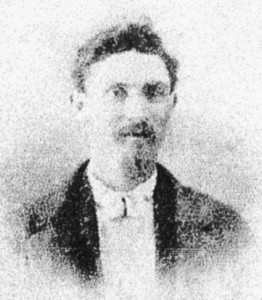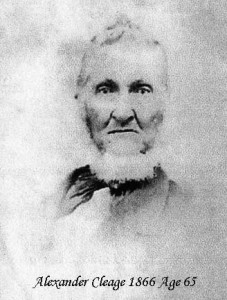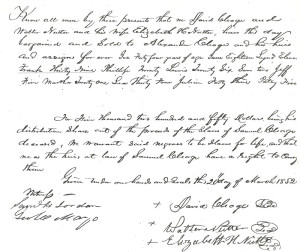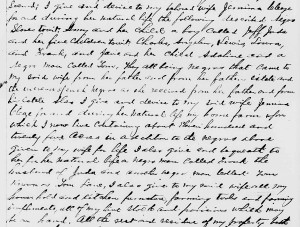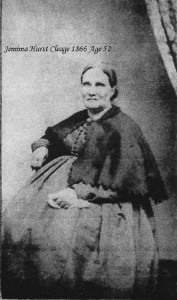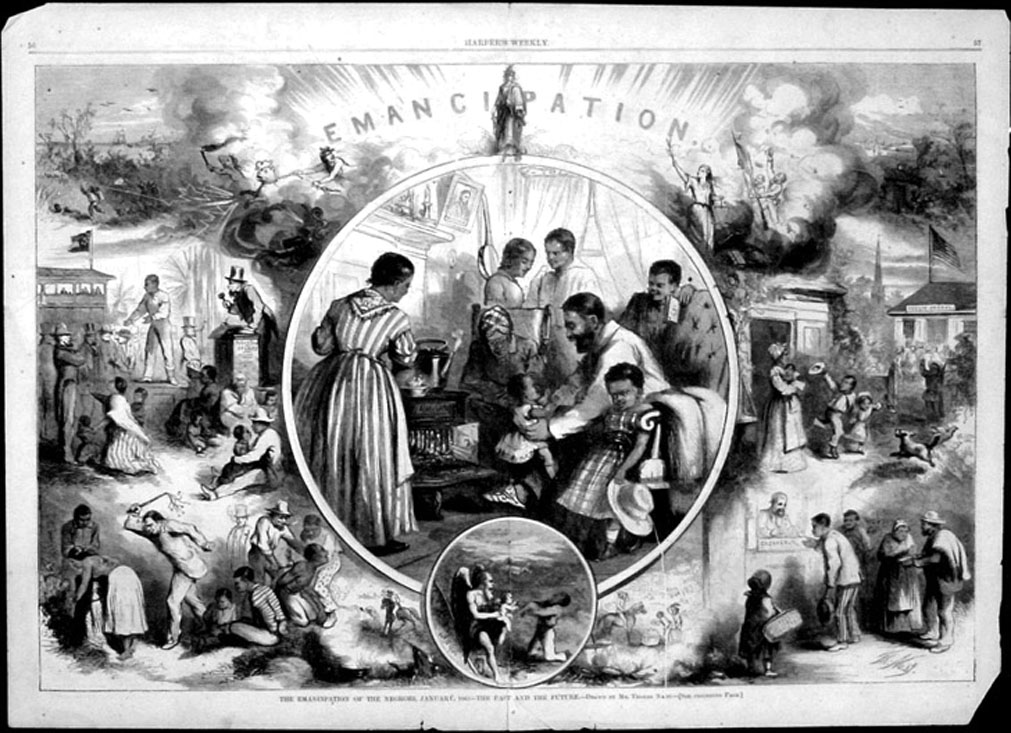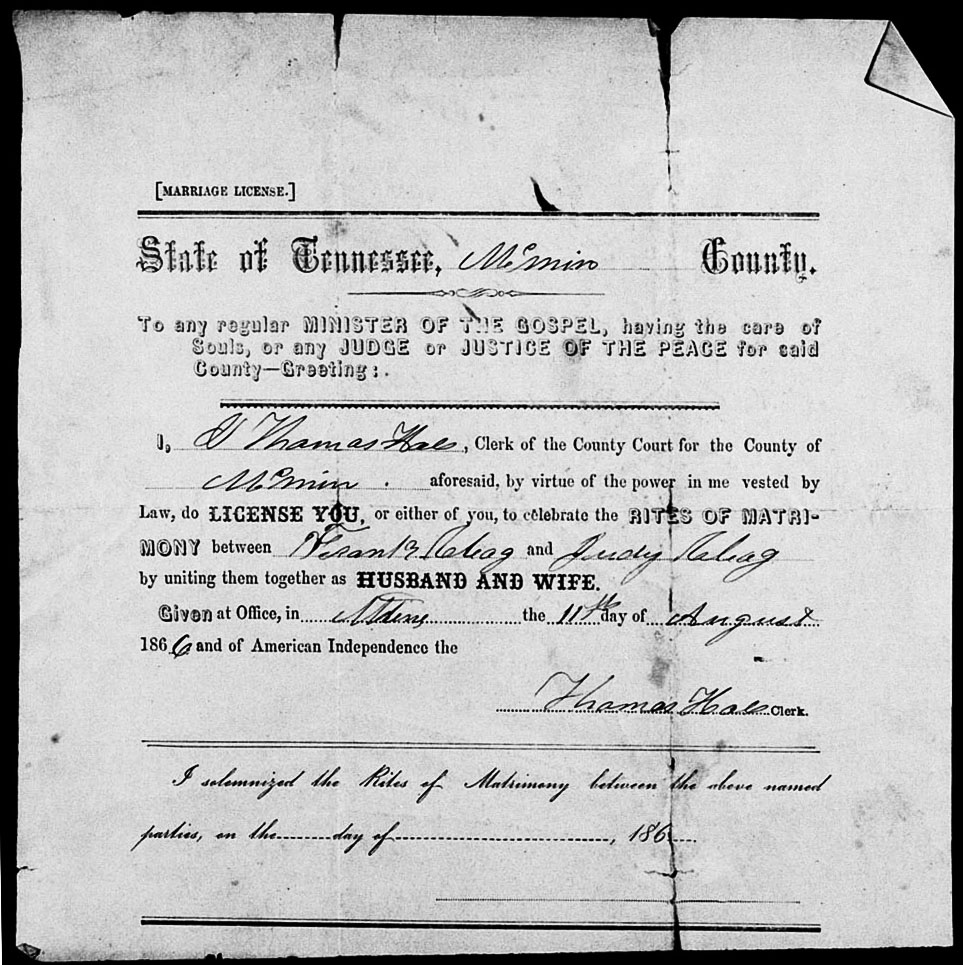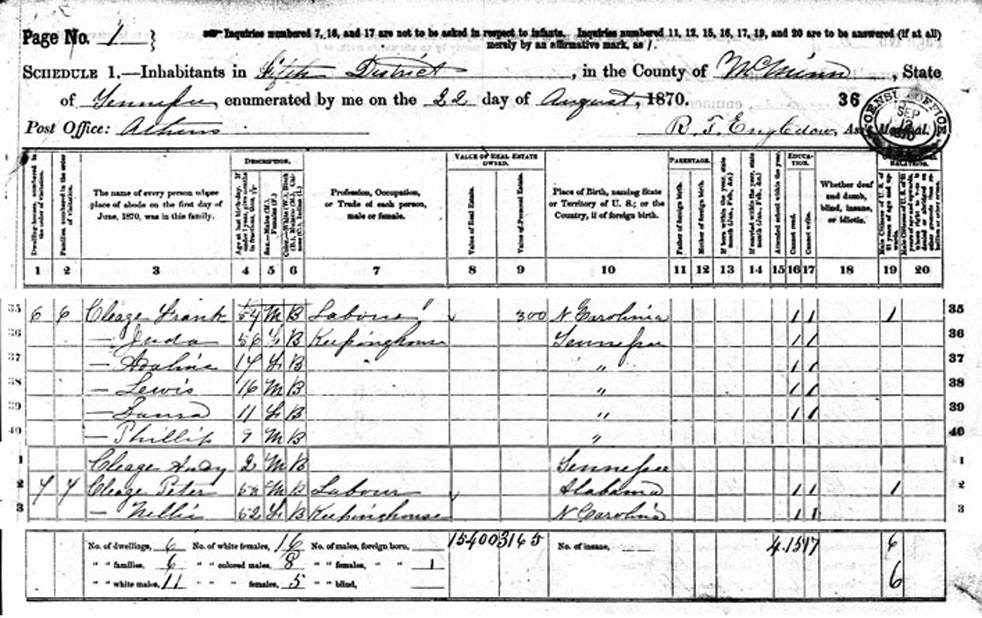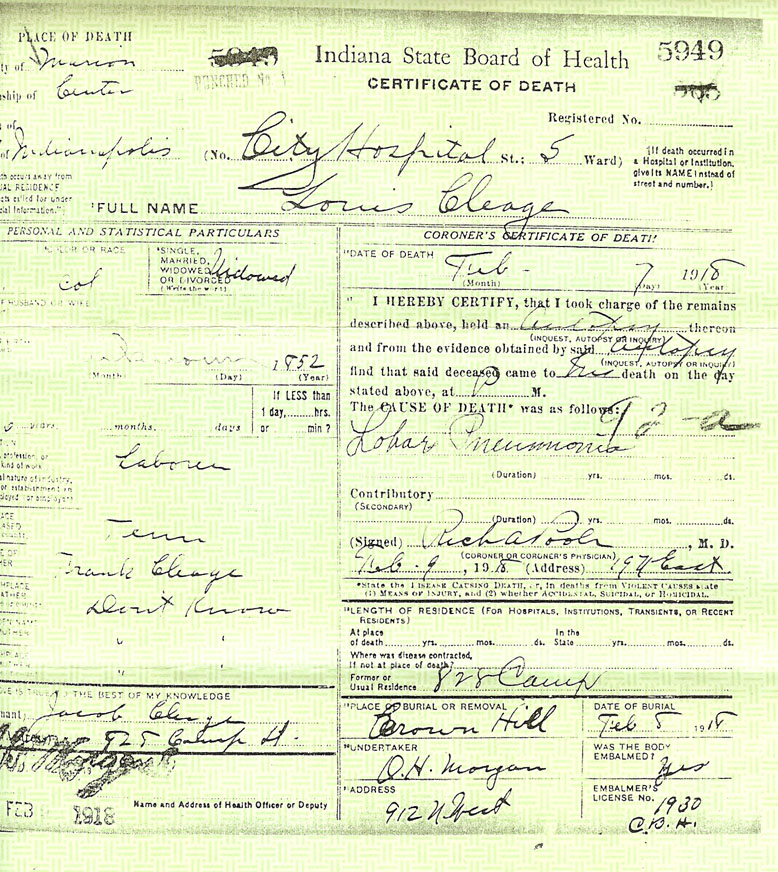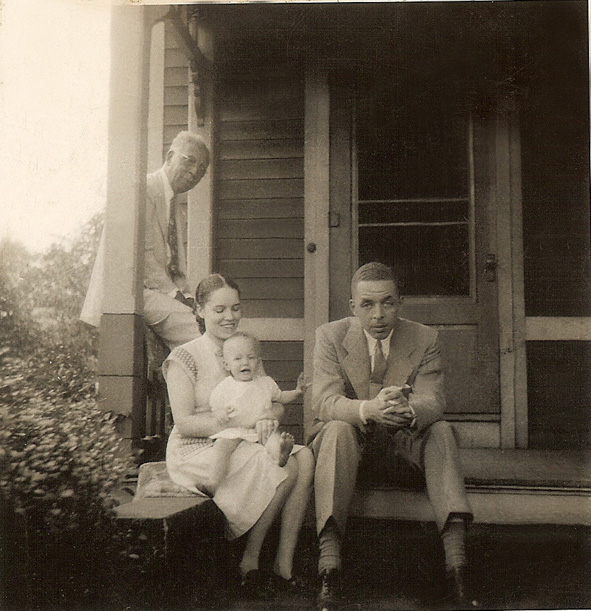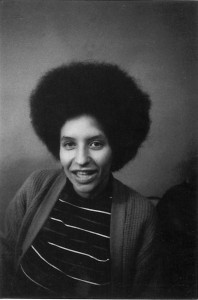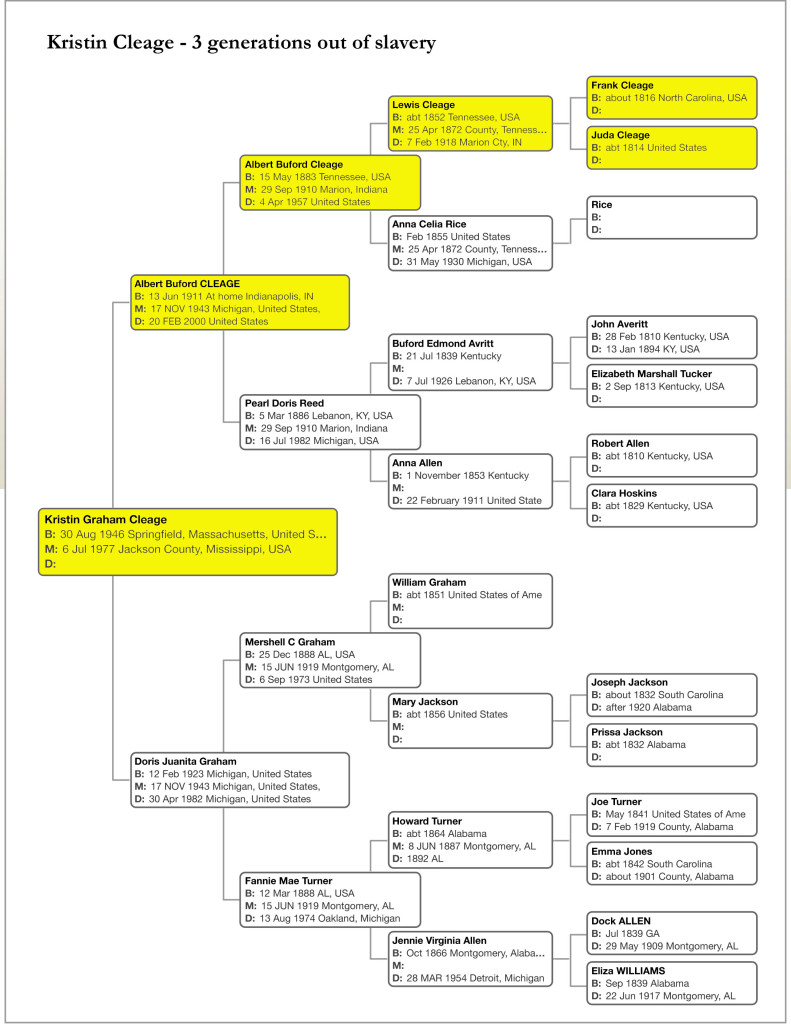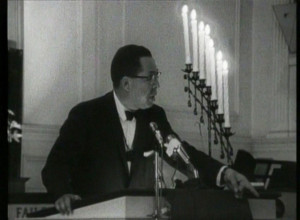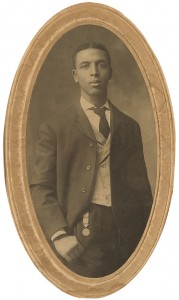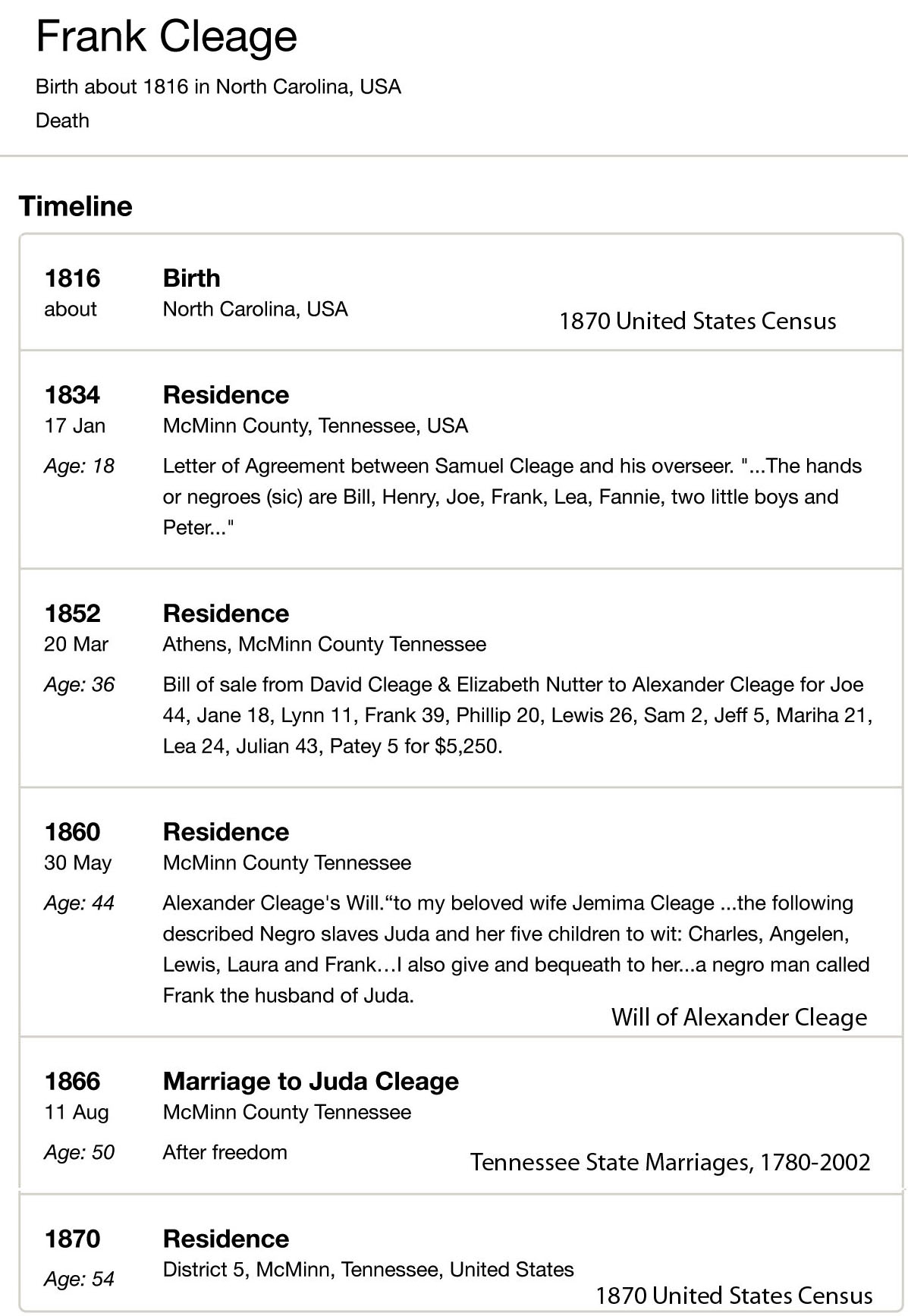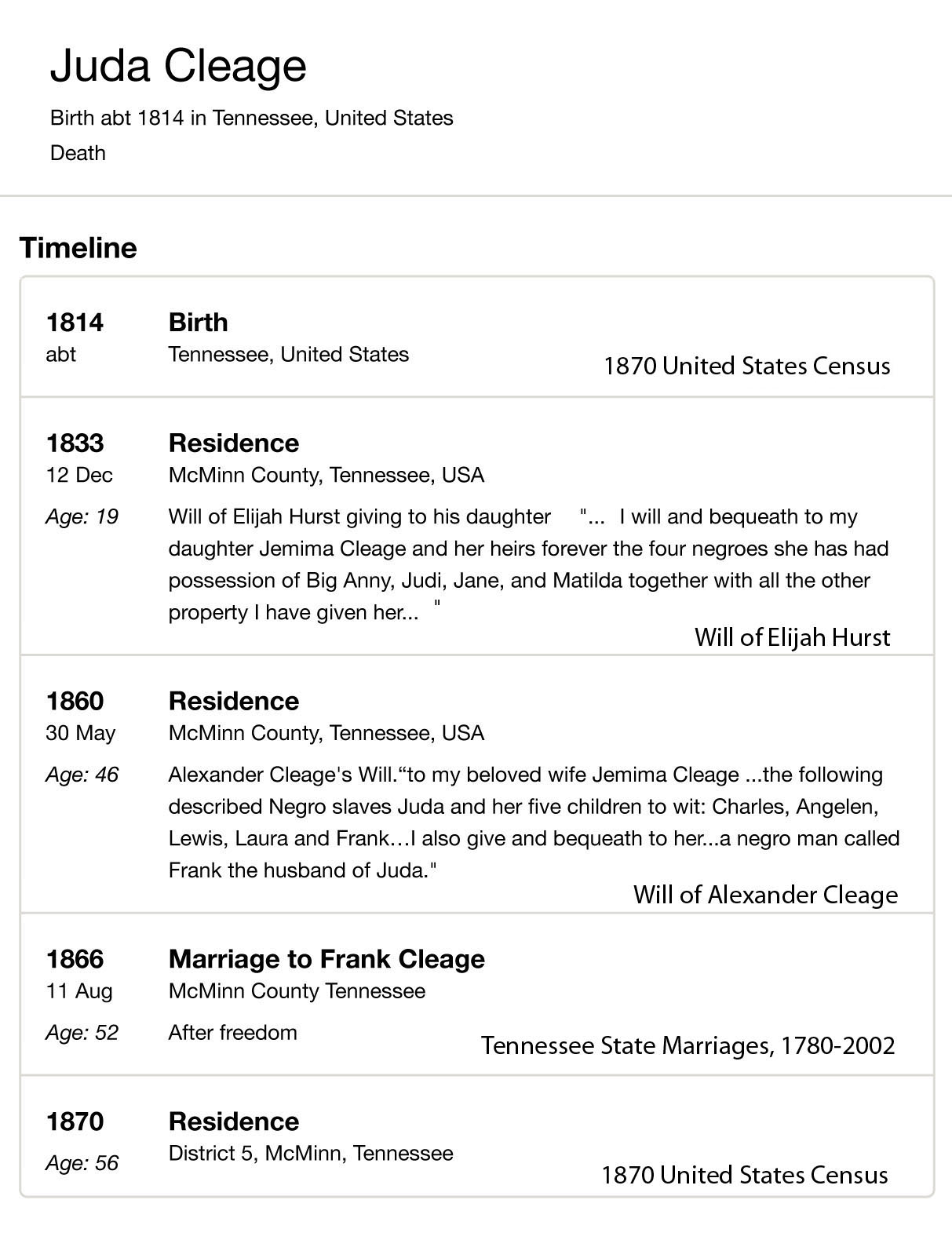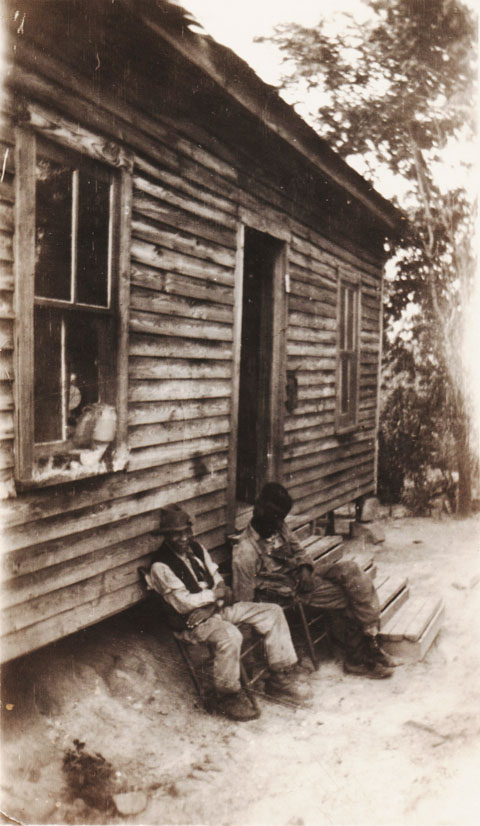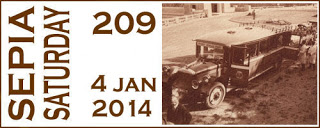My Great Great Grandfather, Frank Cleage, was born around 1816 into slavery in North Carolina. By 1834, Frank was enslaved on the plantation of Samuel Cleage in McMinn County, TN. Samuel Cleage and his traveling group of family and slaves passed through North Carolina moving from Virginia to Tennessee in the 1820s. Perhaps he picked up Frank as payment for one of the fine brick houses he sold along the way. After Samuel’s death, Frank went to his son, Alexander Cleage, as part of the estate. The photographs of the slave owners came from my cousin. I do not know their original source. I do not have a picture of Frank Cleage and have no stories about him. I decided to use a photograph of my Grandfather Albert B. Cleage Sr and his siblings – the first generation of black Cleages to be born free, next to some of the bricks from a Cleage building, built during savery, in McMinn County as the header for this story.
The earliest mention I have of Frank is in a work agreement between Samuel Cleage and his overseer in – “Article of Agreement – 1834“. It includes the paragraph below which mentions Frank. Click on any of the images below to enlarge. Click on links to see full document.
“… to keep the hands his Cleage’s negroes (sic) employed and make them work as would be right to correct them when they deserve but not to be cruel or abuse them but make them do their duty and not suffer them to run about from the farm at nights. The hands or negroes are Bill, Henry, Joe, Frank, Lea, Fannie, two little boys and Peter. Bill is not to be a hand until his master Cleage directs as he is stiller and is to remain in the still house which Cleage carrys (sic) on stilling. …”
My Great Great Grandmother Juda is first mentioned in the Will of Jemima Hurst Cleage’s father, Elijah Hurst. He gave her 4 slaves, including Juda. Alexander Cleage and Jemima Hurst married November 22, 1832. Juda and Jemima would both have been about 19 years old. Although I have found no record proof at this time, I believe that Juda and the other slaves were part of Jemima’s dowery.
“Dec. 2, 1844
… 7th I will and bequeath to my daughter Jemima Cleage and her heirs forever the four negroes (sic) she has had possession of Big Anny, Judi, Jane, and Matilda together with all the other property I have given her …”
Frank is mentioned again in the 1852 Bill of Sale after the death of Samuel Cleage and the division of his slaves and property between his children and wife. David Cleage, Walter Nutter and Elizabeth Cleage Nutter sold Frank to their brother, Alexander Cleage.
“Know all men by these presents that one David Cleage and Walter Nutter and his wife Elizaeth H. Nutter, have this day bargained and sold to Alexander Cleage and his heirs and assigns forever, Joe forty four years of age, Tom Eighteen, Lynd eleven, Frank thirty nine, Phillip forty, Lewis twenty six, Sam two, Martha twenty one, Lea thirty four, Julian forty three, Patey five.
For five thousand two hundred and fifty dollars being his distribution share out of the proceeds of the slaves of Samuel Cleage deceased, We warrant said negroes (sic) to be slaves for life and that we as the heirs, at law of Samuel Cleage have a right to convey them.
Given under our hands and seals this 20th day of March 1852.”
In 1860, Alexander Cleage wrote his Will. He leaves to his wife, Jemima Hurst Cleage, 13 slaves. Frank and his wife Juda and 5 of their children are in that group. Because he didn’t die until 1875, all of them were free before the will was executed.
“Second; I give and devise to my beloved wife Jemima Cleage for and during her natural life the following described negro slaves – to wit: Amy and her child a boy called Jeff, Juda and her five children to wit: Charles, Angelen, Lewis, Laura and Frank, Jane and her child Adaline and a negro man called Tom, they all being negroes that came to my said wife from her father and from her father’s estae and the increase of each negroes as she received from her father and from his estate. Also I give and devise to my wife Jemima Cleage for and during her natural life my home farm upon which I now live containing about eleven hundred and twenty five acres in addition to the negros above given to my wife for life. I also give and bequeath to her for her natural life a negro man called Frank the husband of Juda and another negro man called Tom known as Tom Lane, I also give to my said wife all my household and kitchen furniture, farming tools and farming implements, all of my livestock and provisions which may be on hand …”
30th day of May 1860 Alexander Cleage
“CINCINNATI, Saturday, Jan. 14, 1865
The Commercial has a special dispatch from Nashville, which says:
“The Tennessee State Convention have unanimously passed a resolution declaring slavery forever abolished, and prohibiting it throughout the State.
The convention also pasted a resolution prohibiting the Legislature from recognizing property in man, and forbidding it from requiring compensation to be made to the owners of slaves.”
In 1866, soon after the end of the Civil War, Frank and Judy Cleage were legally married in Athens, TN.
In the 1870 Census Frank was living with his wife, Juda and six children, including my great grandfather, in Athens, Tennessee. I had been looking for my grandfather’s father, Lewis Cleage and found this census record on Ancestry.com. Although this Lewis was the right age, and there were no other Lewis Cleages anywhere in the right age range, I had no name for his father and relationships are not specified in the 1870 census. He could have been living with his uncle and aunt, I didn’t know.
Frank, age 54, worked as a laborer, was born in N. Carolina and nobody in the household could read or write. Juda, age 56, was keeping house. Their personal estate was worth $300. Juda and all the children were born in Tennessee. The children were Adaline 14, Lewis 16, Laura 11, Phillip 9 and Andy 7. There was no Charles or Frank mentioned, although there was a Charles Cleage living elsewhere in Athens, TN, I don’t know for sure if he was the Charles mentioned as one of Juda’s children in Alexander’s Will. Aside from Lewis Cleage, I cannot find family members again after this census. Did they change their names? Die in one of the several epidemics of cholera and yellow fever that swept the county during the 1870s? Believe me, I’ve tried every permutation of “Cleage” and searched page by page the McMinn County 1880 Census and the one for Louden county, where I find Lewis and Celia and their children living in 1880.
Several years ago I found a mention of Juda Cleage in the testimony by Adeline Cleage Sherman during the pension hearings for Katie Cleage that occured in 1890. So I know she was dead by 1890 but that is all. “No he did not tell us, the woman that was with her told that it was white. Aunt Juda Cleage was the woman, but she is dead.“
After searching a variety of spellings of Cleage, I was able to track Lewis/Louis Cleage from job to job and location to location up through the 1910 Census. I could find no death certificate for him. I finally found him living at the same address as his daughter, Josie Cleage and her family in Indianapolis, IN in 1918, while researching at the Indianapolis Library where I could check each Directory, year by year, on microfiche. Frank Cleage’s name appears on my great grandfather, Louis Cleage’s death certificate. Jacob Cleage, my grandfather’s older brother was the informant. He did not remember Louis’ mother Juda’s name or where his grandparents were born. This, along with the Will of Alexander Cleage of 1860, documented the names of my Great Great Grandparents, Frank and Juda Cleage.
